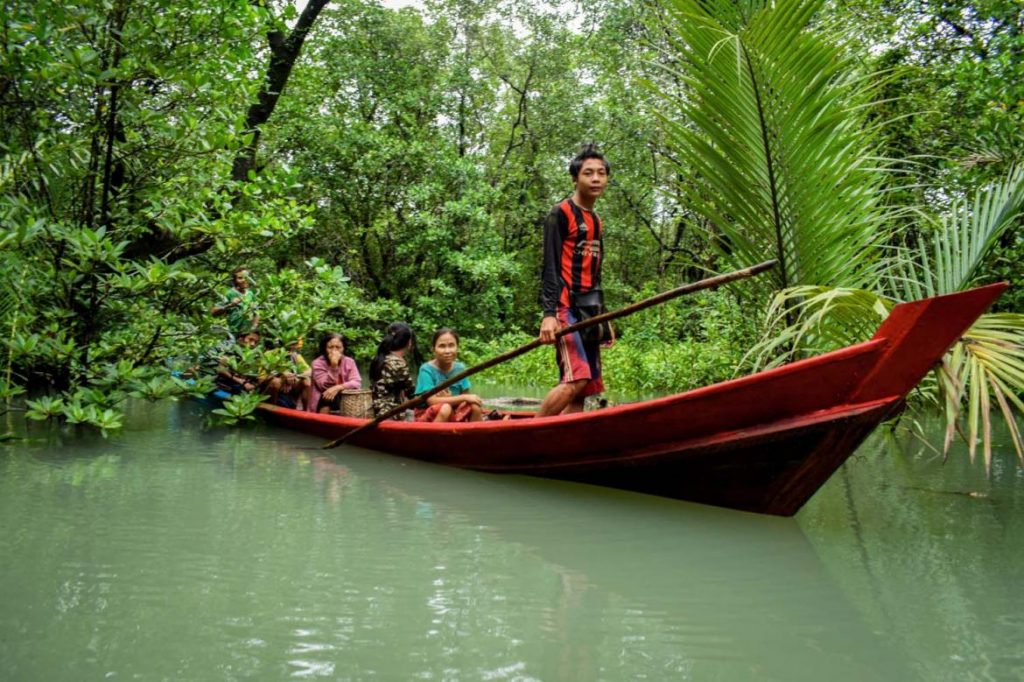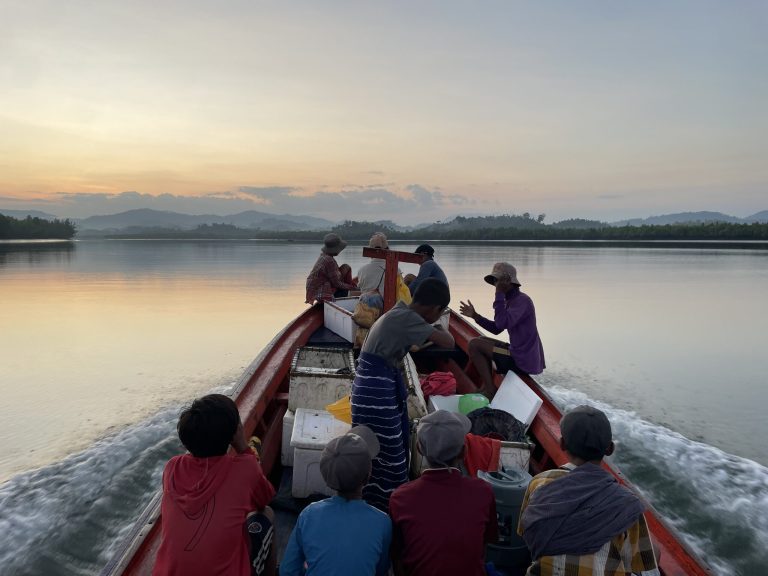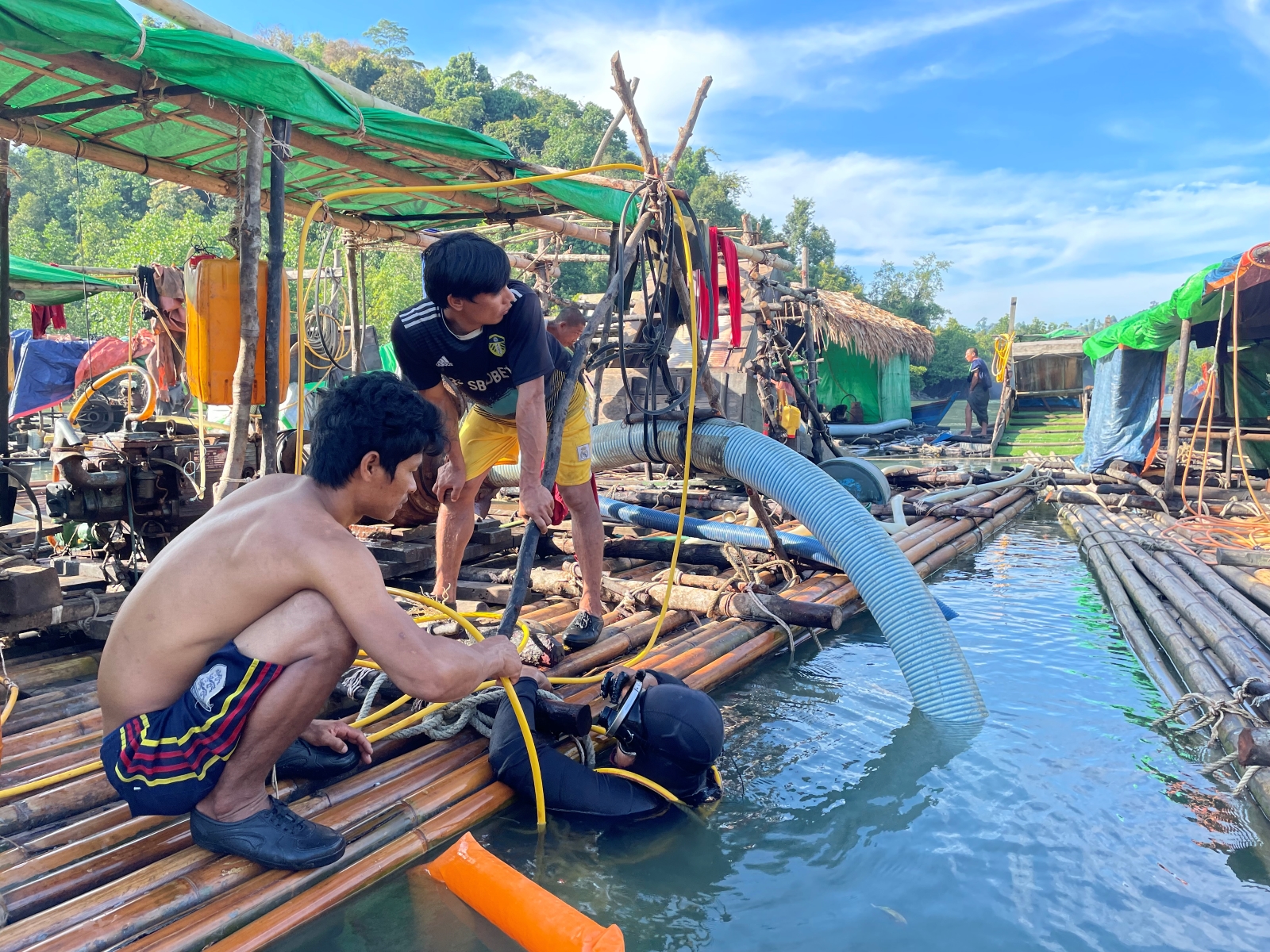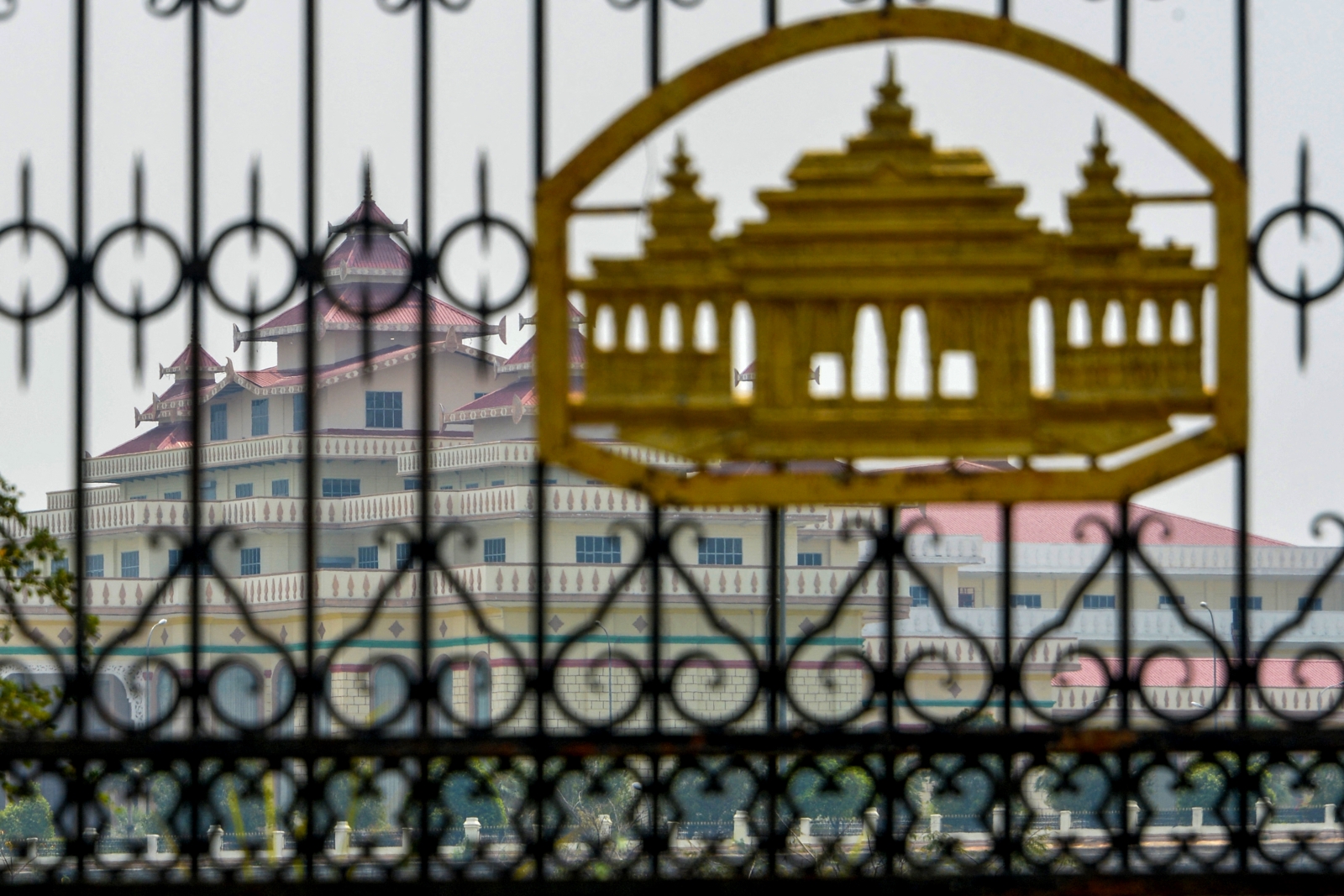Any progress made in land rights and environmental conservation over the past decade will be in peril under the rule of a military with a long history of natural resource plunder.
By ESTHER WAH | FRONTIER
The military’s seizure of power on February 1 has made ethnic nationalities fearful for our lands and forests. For those of us who belong to indigenous minority groups, our land is our life, providing us with sanctuary, safety, shelter and food, but past decades of military rule have seen our forests destroyed, our land exploited and our people terrorised.
Our ancestors protected the forests, just as the forests protected us. We have fought revolutions from these forests, and have sheltered in them while fleeing brutal Tatmadaw attacks. Our forests are recognised as some of the most biodiverse in the world, harbouring healthy populations of endangered species like tigers, pangolins and tapirs. Once again, they’ve become refuges for hundreds of activists, politicians and dissidents fleeing the brutal military repression of recent weeks.
Fear lingers in ethnic nationality areas, where people have suffered years of civil war and persecution at the hands of the Tatmadaw. If fighting resumes, our homes may be destroyed, we may be subject to further brutality and we may be forced to flee across borders. If we have no choice but to leave, how will we be able to protect and sustain the land and forest bequeathed to us by our ancestors?
We’ve long laboured to conserve our land, ensuring that resources are preserved for future generations, so our children may enjoy safe and prosperous lives. Indigenous communities map and measure their land and territory, document traditional knowledge and customary management practices, and enforce locally informed land use rules and regulations. We’ve been working with community-based organisations over the past decade to prove to government authorities and the international community that our livelihoods are sustainable, and that we coexist harmoniously with forests and wildlife.
Between 2018 and 2019, I often travelled to Nay Pyi Taw to lobby the Forest Department and parliamentary committees to grant legal recognition to our territory and management practices. During that period, the government drafted several laws that have major implications for forest management and conservation.
In 2018 the National League for Democracy government amended the 2012 Vacant, Fallow and Virgin Land Law, passed the Land Acquisition, Resettlement and Rehabilitation Law in 2019, and amended the Farmland Law in 2020. These reforms were highly flawed – for example, anyone using land subject to the Vacant, Fallow and Virgin Land Management Law is now required to apply for a permit to continue using it for the next 30 years. This amendments risks stripping many ethnic nationality communities of land they’ve long cultivated.
In recent years we pushed hard for the NLD government to recognise our rights and our relationship to our land, and the customary land tenure systems that we have used to manage it for generations. We allied with indigenous people around the world to show how effective indigenous forms of conservation can be, and that indigenous lands are sanctuaries of enormous biodiversity. Despite repeated setbacks, that struggle was beginning to pay off – we engaged closely with decision-makers, and even when we weren’t satisfied with the outcome of that engagement, we could still find avenues to successfully defend our lands.
Since the coup, however, these efforts have come to a halt, and we’ve lost hope for the future of our forests. One can tally wins and losses under the NLD government, but we now stand to lose everything. If history is any indicator, forests will be logged by timber traders and crony companies. Past regimes who were sanctioned and short on cash turned to rapacious natural resource extraction to finance their repressive rule; if we try to resist a new wave of plunder, we will be jailed and deprived of our human rights.
Already, in less than two months in power, the military is targeting indigenous land rights activists. In Putao, in Kachin State, five Rawang youths who are involved in community activities to protect their land and forests were arrested in February, despite not being heavily involved in the protests. Although they were released earlier this month, they have gone into hiding, fearing further retribution from the military. Other environmental campaigners in ethnic areas, from the northern reaches of Kachin to the southern tip of Tanintharyi, have similarly been forced into hiding, moving from house to house and village to village to maintain their freedom, and escape from police and soldiers. For the defenders of ancestral lands, life is no longer safe.
At the village level, communities continue to pursue forest conservation initiatives, documenting their natural resources and organising local youth. They’ve long had to fight against extractive industries – such as logging, mining, dam projects and vast palm oil plantations – while simultaneously campaigning for autonomy and the right to manage their land and forests themselves. Since February 1, they’ve wondered what will come of these efforts, while also bracing for the prospect of having to find new ways to protect their land and their forests.
To state it again, our forests are our lives – our food, our shelter, our medicine and, in times of conflict, our refuge. Today, we are sharing them with activists from throughout the country, who also need shelter and sanctuary. Just as the forest nurtures us, we nurture it, too, so that future generations may be granted the blessing of its protection.
But as we enter a dark new era of military rule, our forests and their defenders are again threatened and in extreme danger. That is why we are calling on the international community to sever all ties with the military, and not to forget our forests. We urge international donors and conservation groups to continue standing with indigenous people and ethnic organisations, and to offer the support that will help us to protect our forests.
We cannot survive without the forests – but without us, the forests cannot survive.
Esther Wah is an Indigenous Karen woman who works with ethnic communities across Myanmar to support the protection of indigenous people, forest and land rights. Her main area of focus is southern Myanmar.







